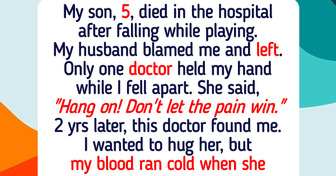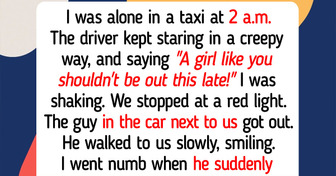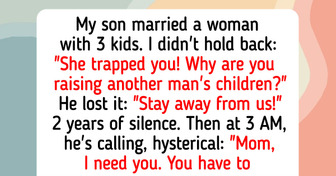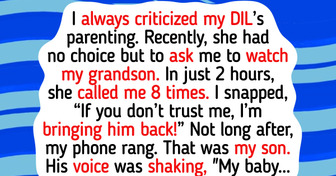My Husband Unconsciously Called Me Another Woman’s Name — I Was Utterly Shocked to Discover Who It Was

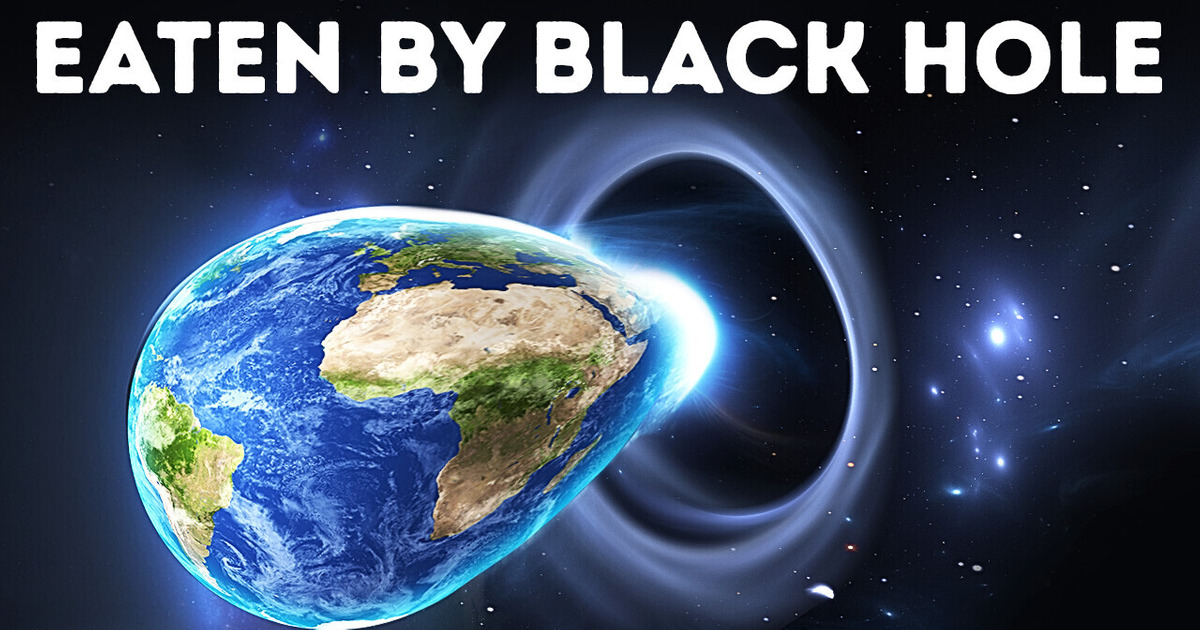
Black holes are some of the most enigmatic and sinister phenomena in the universe. They can swallow up entire stars and planets, bending the very fabric of space and time. But what if Earth, our home planet, were to be caught in the grip of a black hole’s event horizon? Hmm. What would we see before the inevitable end? Let’s have a looksee, okey dokey?
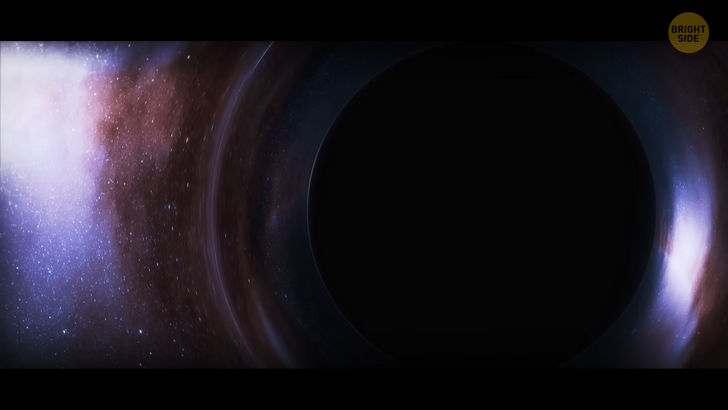
So a black hole is like the bully on the playground. You avoid them at all costs. It’s a region of space where gravity is so strong that nothing, not even light, can escape it. It’s like Houdini in reverse.
As with snowflakes, every black hole is unique. Each one has its own mass, spin, and charge. And they also come in different sizes, sort of like jeans! Petite, slim, regular, and husky, or something...Anyway, there are four sizes. The smallest black holes are the stellar-mass kind. They’re born when a massive star runs out of juice and folds in on itself. They’re like the chihuahuas of the black hole world — they may be tiny, but they’re feisty! They gobble up nearby matter like a hungry puppy. And even the smallest one is 3 times more massive than our Sun!
Next up, we have the middle children of this cosmic family: intermediate-mass black holes. They’re too big to be born out of the collapsed stars. Scientists believe that they may be created when several black holes merge into one. And even though they can’t dominate galaxies, at least they can swallow up some nearby stars. Goody for them, huh? But do you know who can dominate a galaxy? The enormous monsters of our universe: supermassive black holes. They’re the giants with masses ranging from millions to billions of times that of our Sun. And they play a crucial role in the growth and formation of their host galaxies.
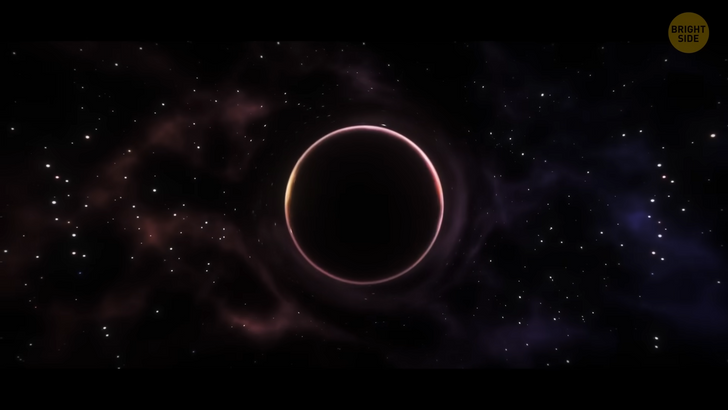
Finally, there are ultra-massive black holes. Trust me, you can’t even imagine the size and the mass of these guys. These cosmic eldritch horrors are extremely rare, but the ones we know can devour entire galaxies like Pac-Man! So, what happens if you get too close to a black hole? Or more like, “what would you see in your last moments”? Well... First, you reach an event horizon. It’s like a “point of no return,” an invisible boundary that marks the edge of a black hole. And here’s where things start to get really weird. For example, time starts to slow down. Not for you — for an outsider watching you from a safe distance. If you were falling into a black hole, you wouldn’t feel any different. But if you were watching someone else fall into it, you’d see them slow down and eventually freeze in time, like in a paused video.
As you get even closer, you would start to see some pretty mind-bending things. The gravity would cause the light around you to bend and distort, creating a sort of funhouse mirror effect. You might even see a halo of light around the black hole, known as the photon ring, or jets of high-energy particles spewing out from the black hole’s poles. You can actually get pretty close to a black hole without feeling any major effects. It’s only when you cross the event horizon, then there’s no going back. Your goose is cooked.
After crossing this boundary, you’d be unable to see anything. For the person watching you from the outside, it would be as if you had suddenly disappeared. Meanwhile, you might start feeling a bit stretched out, like a piece of spaghetti. This is because the gravity is so stark that it’s pulling you in different directions at once. There’s even a scientific term for it called “spaghettification”.
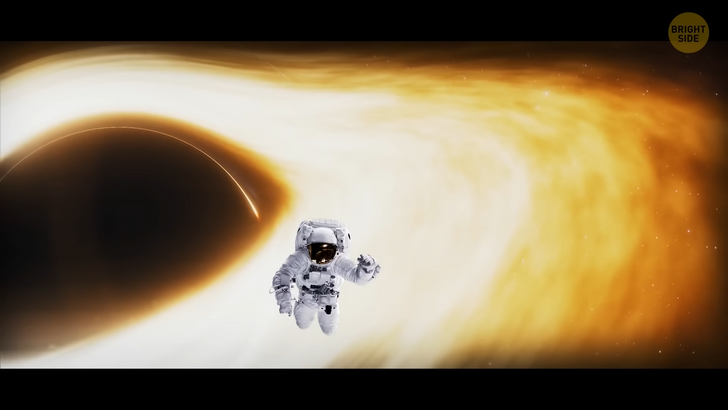
Now that you’re inside a black hole, you’re taking aim at the singularity. It’s a point of infinite density in its center, where all matter is crushed down to a single point. It’s like trying to fit an elephant into a tiny matchbox — everything gets squished together until it’s as small as it can possibly be. Which means it’s time to wave goodbye, I guess.
And if all that sounds scary, here’s another fun fact: black holes are not rare at all! Actually, there’s one in the center of each galaxy, including our own Milky Way. So... does it mean that we’ll be eventually sucked into it? And if so, how exactly would it happen? Well, let’s see... Imagine a black hole approaching our solar system. At first, it appears as nothing more than a tiny speck in the distance. But as it gets closer and closer, its gravitational pull begins to wreak havoc around. Planets start to veer off course, asteroids are flung into oblivion, and comets are shattered into a million pieces.
But just like waiting for the sausage to be served in a German restaurant, the “wurst” is yet to come. Like that joke. Soon, it inevitably reaches the Earth. First, our planet’s atmosphere would be pulled towards the black hole, triggering a massive windstorm. And there’d be huge waves on the oceans, the water itself being distorted by gravitational forces. Imagine seeing seas and oceans get stretched out!
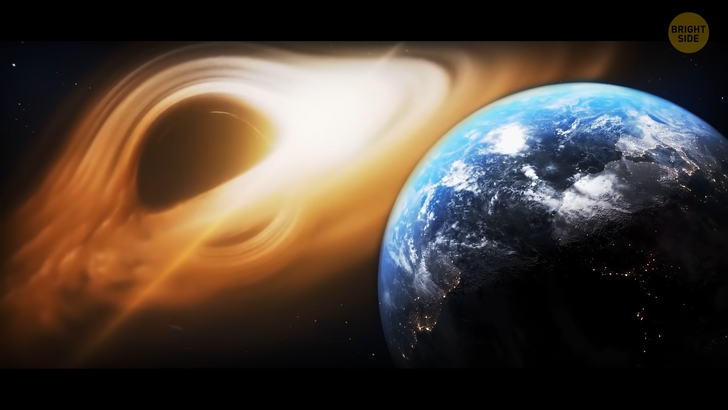
Earth’s magnetic field is generated by the motion of molten iron in the planet’s core. But now, the extreme tidal forces of the black hole would disrupt this motion, causing the magnetic field to weaken and distort. All this would cause massive earthquakes and volcanic eruptions, as the planet’s crust and mantle were pulled apart. All infrastructure and technology would be completely destroyed. Buildings, bridges, and roads would be torn apart.
Okay let’s hit the pause button. Pretty horrifying, isn’t it? Nah, but don’t worry! You wouldn’t even have seen all that. Because you would’ve felt the effects of the black hole much, MUCH earlier! Back to the future. We’d lose our magnetic field even before everything started to collapse. And this means not only that the weather and climate will become terrible... we’d also be exposed to EXTREME radiation. These gamma rays and the heat from the black hole could drastically change our planet. Say ta-ta to all our beautiful nature. At least misery loves company — we won’t be the only ones affected by a black hole... (which is probably even worse).
As this beast engulfed the entire solar system, it would consume about everything. One immediate effect would be the disruption of the orbits of asteroids, comets, and all the other bodies. The planets would begin to deform and stretch, their surfaces warping like molten metal. The Sun itself would be affected, its surface contorting like a gob of putty.
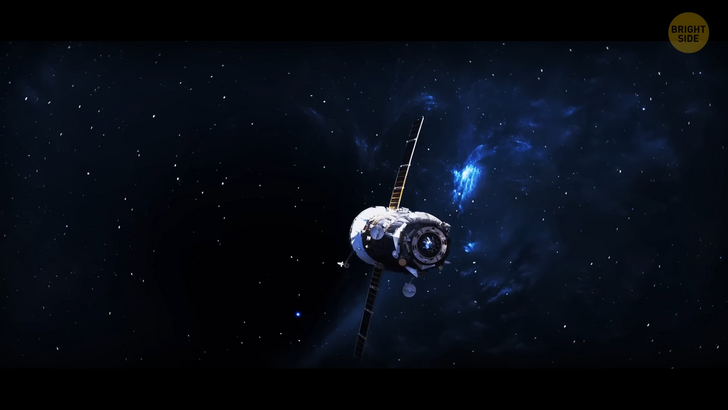
And yeah, all this is scary to even imagine. But now, breathe and relax. Because none of this will ever happen. This is the Bright Side, remember? Your infinitesimal odds of winning the big lottery are even better that the Earth will ever be swept into a black hole. The nearest black hole to our solar system is called Gaia BH1. Discovered by scientists in 2022, it’s found in our own Milky Way galaxy, about 1600 light-years away from Earth. Gaia BH1 is about 10 times the mass of our Sun, which makes it a stellar-mass black hole. It’s not very interesting on its own, but its discovery has supplied valuable insights into the behavior of these cosmic monsters. But, as you can see, even the closest known black hole is over 1,000 light-years away. They move very slowly, and they’ll never get so close to our system to pose some kind of threat.
"Hey, but didn’t you say that there’s a black hole in the center of the Milky Way? Doesn’t that mean it’s going to eventually hoover up our entire galaxy?"— you may ask. Maybe not in that voice. Well don’t worry: the correct answer is “no.” The one in the center of our galaxy is called “Sagittarius A-Star”. You may remember it from that viral blurry photo that circled around the internet a few years ago. This black hole is indeed very massive and has a strong gravitational pull, like two eighth graders in love.
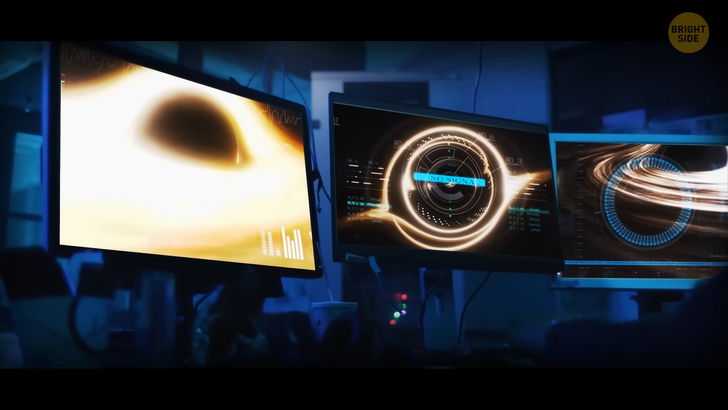
However, it’s still a small bean. It only affects objects that are close to it. The objects in the galaxy are all too big and move too fast to be pulled in by black holes. Nevertheless, they’re still fascinating objects to study. Scientists are still trying to unlock the mysteries of black holes. And even though they’ll never be dangerous to us, they’re still a huge reminder of the incredible power of our universe. Now I think I’ll turn my attention to the incredible power of chocolate...

